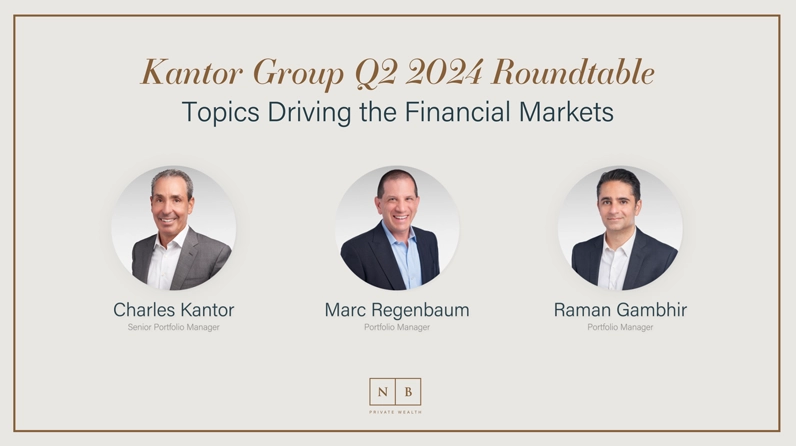
Tax-managed portfolios can serve as a foundation in solving multiple investment and financial challenges.
Taxes are a constant shadow in investing that is often interwoven with key decisions around portfolios. Should I sell a concentrated stock position despite the large capital gains that I’d realize? How can I shape my investments to be more in line with my goals without incurring excessive tax costs? How can I efficiently secure access to diversified portfolio exposures? How can align my assets closer to my social values? These questions and more have long challenged investors, but we believe they have found increasingly effective answers in custom direct investing, or CDI.
Addressing Multiple Issues
Our approach to custom direct investing is an outgrowth of a couple investment trends. One is traditional indexing, or matching a particular market benchmark in a mutual fund or ETF. Another is direct indexing, which involves building an index-like portfolio on a separate-account basis. CDI takes things further by introducing additional layers of customization to establish portfolios that cater to specific preferences, including accommodating existing holdings on a tax-efficient basis while drawing on the benefits of active investment strategies.
Executed properly, we see CDI as a way to address a variety of issues faced by investors:
In a high tax bracket with material tax liabilities. CDI can defer capital gains and harvest capital losses, when available, which can be used to offset gains elsewhere in your portfolio and reduce your overall tax bill. This can be exceptionally powerful as it allows you to remain invested in the market and to potentially compound tax savings over time.
Align investments with personal values. On a tax-efficient basis, it’s possible to implement screens catering to personal values, for example by excluding tobacco or firearms, or restricting certain industries or stocks. You can also invest in portfolios that take into account environmental, social and governance (ESG) factors in their processes, or seek to create specific impacts tied to ESG issues.
Reset appreciated stock portfolios. Investments that were once appropriate for you may no longer serve your needs; some may have grown disproportionately, leaving your portfolio out of balance. The CDI framework offers flexibility by systematically harvesting losses in specific securities (a common occurrence even in a good year for the markets). This permits the sale or trimming of existing holdings to bring portfolios more into balance. The approach can also help to maximize the impact of charitable giving or allow you to raise cash more efficiently when you need it.
Deal with concentrated stock positions. Many executives and their families puzzle over how to reduce the risk of a concentrated stock position, which has often grown as a result of compensation. Traditionally, the key question associated with a sale was how to balance the tax cost with the potential for appreciation or risk reduction in other investments. CDI can make things easier by enabling the construction of a diversified portfolio around that central position, while freeing up losses elsewhere from typical market ups and downs to tax-efficiently reduce the concentrated exposure.
Control your investment and tax experience. Much of the time, investing can seem to be about settling for ill-fitting investments because of restraints tied to taxes, or having to pay more taxes than you would prefer because of investment structure or in order to achieve liquidity for financial goals. Via personalization and tax management, CDI can help maximize your level of control over your assets.
Working With Us
We believe that the Neuberger Berman CDI platform sets the standard for tax-efficient separate accounts due to its customization, quantitative rigor and access to premier active investment managers. Investors who come to us with an existing portfolio and anticipate the need to sell their holdings and start over may be pleasantly surprised by their ability to integrate those securities into multiple diversified strategies. Moreover, our systematic approach to loss harvesting over time can make any sales less painful by offsetting realized gains, and thus can encourage appropriate diversification that might not otherwise be available. In our view, CDI is an innovative, efficient capability with great potential to address an array of situations and enhance the potential for positive tax-efficient outcomes over the long term.
Elements of Tax-Efficiency
In investing, it’s what you keep that matters—and central to that idea is tax efficiency. Key issues to consider include:
- Holding period and turnover. Owning stocks for longer allows you to capitalize on potential secular growth while limiting portfolio turnover that generates realized capital gains.
- Location. From an asset-location perspective, higher-turnover portfolios or tax-inefficient strategies like real estate investment trusts may be better placed in a retirement account.
- Tax-advantaged assets. Certain investments have tax benefits—most notably municipal bonds, whose interest may be exempt from federal and state taxes.
- Tax-loss harvesting. Tax-loss selling to offset realized gains traditionally happens at the end of the year, but CDI enables such harvesting on an ongoing basis across your portfolio, to ensure capture of losses for current or future needs.

VIDEO
Holly Newman Kroft Discusses the Election’s Impact on the Market

Accolades
Three Advisors Ranked in Barron’s 2024 “Top 100 Women Financial Advisors”

MUNICIPAL BASIS POINTS
Tailwind From Rates and Supply?

VIDEO
Kantor Group Q2 2024 Roundtable – Topics Driving the Financial Markets

INSIGHTS
CIO Notebook: As Biden Steps Away, Harris Takes the Stage

REPLAY
Private Wealth Mid-Year Investment Outlook

INSIGHTS
CIO Notebook: Market Reaction to Trump Assassination Attempt
INSIGHTS
CIO Notebook: Greater Confirmation Delivered?
MARKET COMMENTARY
Markets Score, Elections Roar
INSIGHTS
CIO Notebook: June Payrolls Strong but Revisions Underscore Concerns
VIDEO
Holly Newman Kroft Discusses Continued Market Concentration
INSIGHTS
CIO Notebook: Inflation Data Lifts Stocks But Fed Remains Unconvinced
MARKET COMMENTARY
April Showers Bring May Flowers
This material is provided for informational purposes only and nothing herein constitutes investment, legal, accounting or tax advice, or a recommendation to buy, sell or hold a security. This material is general in nature and is not directed to any category of investors and should not be regarded as individualized, a recommendation, investment advice or a suggestion to engage in or refrain from any investment-related course of action. Investment decisions and the appropriateness of this material should be made based on an investor’s individual objectives and circumstances and in consultation with his or her advisors. This material is not intended as a formal research report and should not be relied upon as a basis for making an investment decision. The firm, its employees and advisory clients may hold positions within sectors discussed, including any companies specifically identified. Specific securities identified and described do not represent all of the securities purchased, sold or recommended for advisory clients. It should not be assumed that any investments in securities, companies, sectors or markets identified and described were or will be profitable. Neuberger Berman, as well as its employees, does not provide tax or legal advice. You should consult your accountant, tax adviser and/or attorney for advice concerning your particular circumstances. Information is obtained from sources deemed reliable, but there is no representation or warranty as to its accuracy, completeness or reliability. All information is current as of the date of this material and is subject to change without notice. Any views or opinions expressed may not reflect those of the firm as a whole. Third-party economic or market estimates discussed herein may or may not be realized and no opinion or representation is being given regarding such estimates. Neuberger Berman products and services may not be available in all jurisdictions or to all client types. The use of tools cannot guarantee performance. Diversification does not guarantee profit or protect against loss in declining markets. As with any investment, there is the possibility of profit as well as the risk of loss. Investing entails risks, including possible loss of principal. Investments in hedge funds and private equity are speculative and involve a higher degree of risk than more traditional investments. Investments in hedge funds and private equity are intended for sophisticated investors only. Unless otherwise indicated, returns reflect reinvestment of dividends and distributions. Indexes are unmanaged and are not available for direct investment. Past performance is no guarantee of future results.
The views expressed herein may include those of the Neuberger Berman Multi-Asset Class (MAC) team, Neuberger Berman’s Asset Allocation Committee and Neuberger Berman’s Investment Strategy Group (ISG). The Asset Allocation Committee is comprised of professionals across multiple disciplines, including equity and fixed income strategists and portfolio managers. The Asset Allocation Committee reviews and sets long-term asset allocation models, establishes preferred near-term tactical asset class allocations and, upon request, reviews asset allocations for large, diversified mandates. Tactical asset allocation views are based on a hypothetical reference portfolio. ISG analyzes market and economic indicators to develop asset allocation strategies. ISG consists of five investment professionals and works in partnership with the Office of the CIO. ISG also consults regularly with portfolio managers and investment officers across the firm. The views of the MAC team, the Asset Allocation Committee and ISG may not reflect the views of the firm as a whole, and Neuberger Berman advisers and portfolio managers may take contrary positions to the views of the MAC team, the Asset Allocation Committee and ISG. The MAC team, the Asset Allocation Committee and ISG views do not constitute a prediction or projection of future events or future market behavior. This material may include estimates, outlooks, projections and other “forward-looking statements.” Due to a variety of factors, actual events or market behavior may differ significantly from any views expressed or any historical results. Nothing herein constitutes a prediction or projection of future events or future market or economic behavior. The duration and characteristics of past market/economic cycles and market behavior, including length and recovery time of past recessions and market downturns, is no indication of the duration and characteristics of any current or future market/economic cycles or behavior.
Neuberger Berman Investment Advisers LLC is a registered investment adviser. The “Neuberger Berman” name and logo are registered service marks of Neuberger Berman Group LLC.